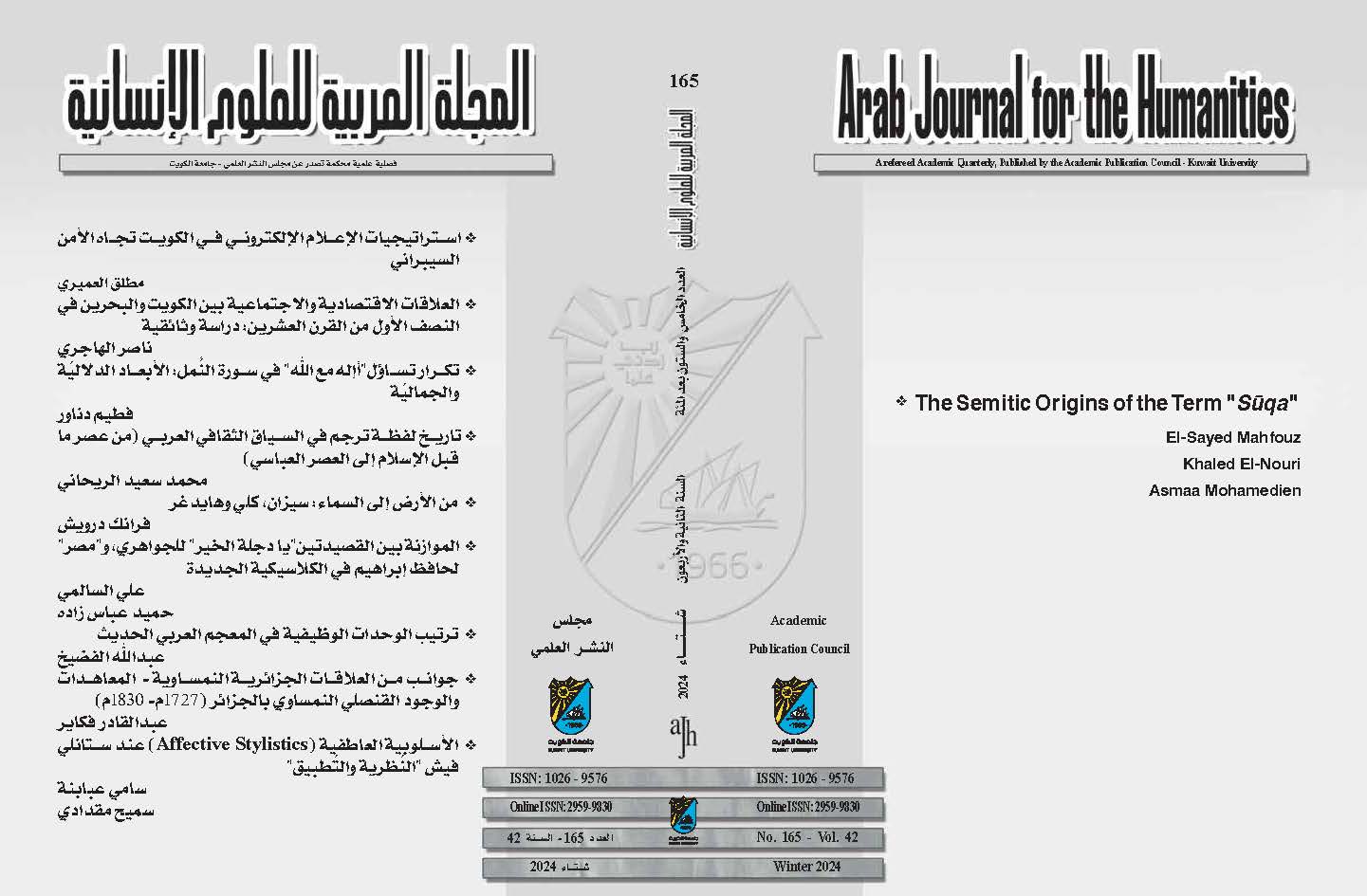The History of the Term "Tarjama"[to Translate] in the Arab Cultural Context (From the Pre-Islamic Period to the Abbasid One).
Keywords:
translate, translation, pre-Islamic period, early Islamic period, Umayyad period, Abbasid periodAbstract
This study "History of the Term "Tarjama" [to translate] in the Arab Cultural Context (From the Pre-Islamic Period to the Abbasid One)", comes in the context of contributing to filling the void that Arabic Scholarly research suffers from in the field of Translation Studies due to the scarcity of studies on tracing the history of the word "tarjama" in the Arabic cultural and translational contexts. The present study resorts to the analytic-diachronic approach, and is driven by fundamental questions. The study aims to lay hands on the beginnings of the problem in time, to monitor the causes of this negligence, to identify the actors who contributed to the chaos of the translation terminology over the ages, and to define the political responsibilities of successive political regimes in the management of Arab-Islamic public affairs by influencing the symbolic expressions of cultural action, controlling the Arabic terminology and redirecting it the way that matches the image of the established political system.
In all of this, the present study relies on conducting a deep-dive inquiry into the term "tarjama" by digging ino the linguistic archive collected throughout Arab history comparing the terms to be found to each other in their time and then to their counterparts in our time. The study has the following findings: translation, in pre-Islamic culture, was part of communication in general that it had no “noun” to distinguish it nor did it have a “verb” to describe it, or to distinguish it from the other forms of communication, such as “writing” and “reading”; the term "tarjama" [to translate] was first used by Prophet Mohamed, may God’s prayers and peace be upon him, during his prophetic mission; the term "ablagha" [to report] was the alternative verb at the time of the Rightly Guided Caliphates to the verb "tarjama", which had prevailed at the time of the Prophet's mission; the Umayyad culture chose a different term to refer to the act of translation which is "fassara" [to interpret]; and the Abbasid culture scrutinized the subject more and chose "naqala" [to transpose] for literal translation and "tarjama" [to translate] for free translation.
















